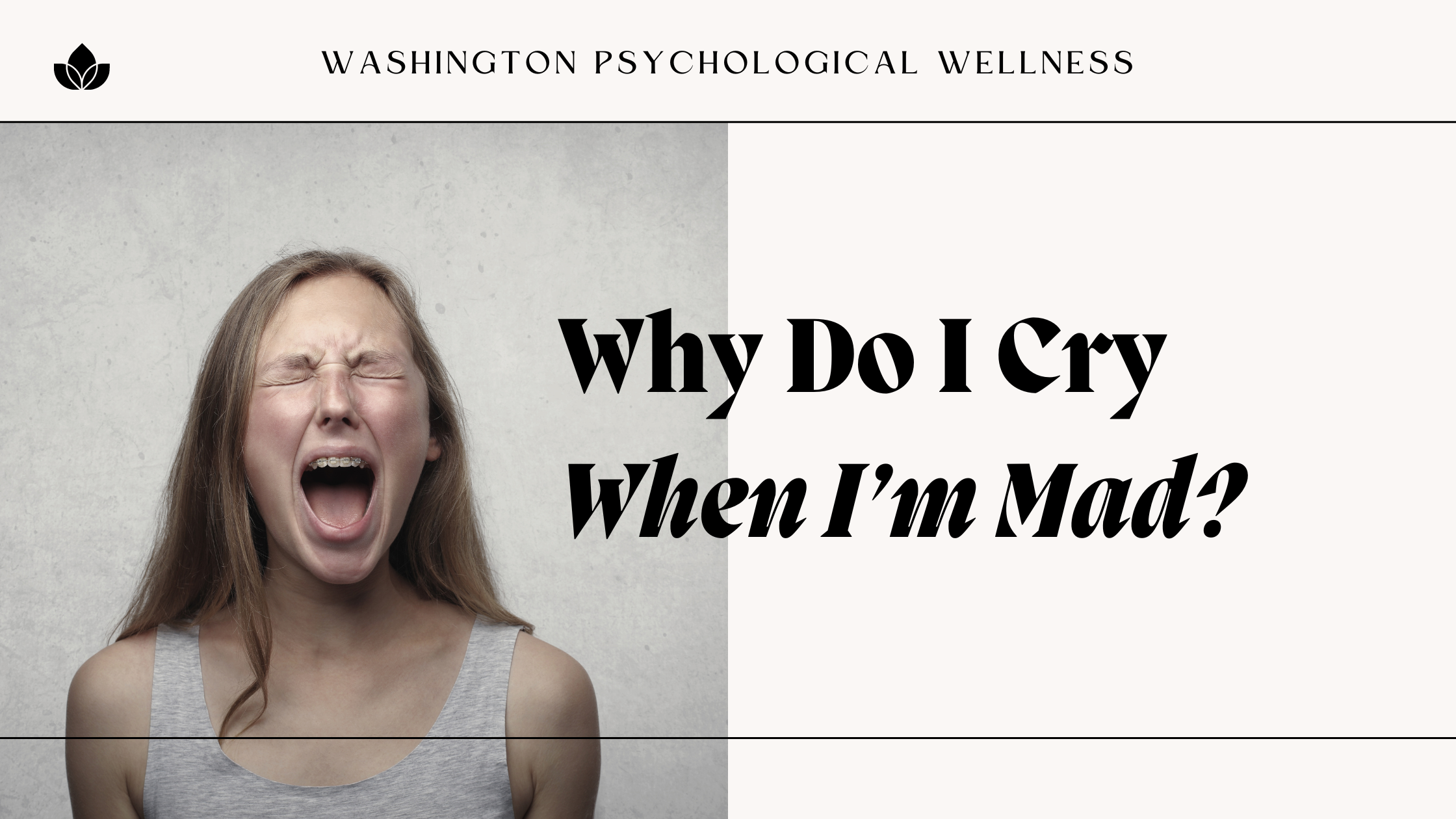
Why Do I Cry When I Get Mad? Understanding the Emotional Response
Have you ever found yourself in a heated argument or an intensely frustrating situation, only to feel your eyes welling up with tears? It’s a common experience, but one that can leave you feeling confused and embarrassed. Why do we cry when we get mad? At Washington Psychological Wellness, we’re here to help you understand this emotional response and provide insights into managing your reactions.
The Science Behind Tears
The Physiology of Crying
Crying is a natural response to a range of emotions, including sadness, happiness, and anger. When we cry, our bodies release tears from the lacrimal glands located just above the outer corner of each eye. Tears can serve several purposes, such as lubricating the eyes, removing irritants, and expressing emotional states.
Types of Tears
Not all tears are the same. There are three types of tears:
- Basal Tears: These keep our eyes moist and protect them from dust and debris.
- Reflex Tears: These are produced in response to irritants like smoke or onions.
- Emotional Tears: These tears are triggered by a range of emotions, including anger.
Emotional Tears and Anger
The Connection Between Anger and Crying
Crying when you’re angry might seem counterintuitive, but there’s a solid physiological and psychological basis for this reaction. When you experience intense emotions, your body’s stress response is activated. This response is regulated by the autonomic nervous system, which controls bodily functions like heart rate and blood pressure.
The Role of the Amygdala
The amygdala, a small almond-shaped structure in the brain, plays a key role in processing emotions. When you get angry, the amygdala sends signals to the hypothalamus, initiating the body’s fight-or-flight response. This response can lead to increased heart rate, muscle tension, and the release of stress hormones like cortisol.
In some people, this intense emotional arousal also triggers the production of tears. Crying can serve as a physical release, helping to reduce stress and restore emotional equilibrium.
Why Do Some People Cry More Easily Than Others?
Everyone’s emotional threshold is different. Factors such as genetics, personality, and past experiences can influence how you respond to anger and other strong emotions. Some people are naturally more sensitive and may cry more easily due to a lower threshold for emotional arousal.
Psychological Perspectives
Crying as a Communication Tool
From a psychological standpoint, crying can also serve as a nonverbal form of communication. When you cry during an argument or conflict, it can signal to others that you are feeling overwhelmed or in distress. This can potentially de-escalate the situation by eliciting empathy and support from those around you.
Gender Differences
Research has shown that women tend to cry more frequently than men. Social and cultural factors play a role in this difference. Women are often socialized to express their emotions more openly, while men may be encouraged to suppress their feelings. However, it’s important to remember that crying is a natural response for everyone, regardless of gender.
Managing Anger and Tears
Recognize Your Triggers
Understanding what triggers your anger and subsequent tears can help you manage your emotional responses. Keep a journal to track situations that lead to these reactions. Over time, you may notice patterns that can provide insight into your emotional triggers.
Practice Mindfulness
Mindfulness techniques, such as deep breathing and meditation, can help you stay grounded and manage your emotions more effectively. When you feel anger rising, take a few deep breaths to calm your nervous system. This can help you gain control over your emotional response and reduce the likelihood of crying.
Seek Professional Help
If crying when you’re angry is impacting your daily life or relationships, consider seeking professional help. At Washington Psychological Wellness, our experienced therapists can provide you with tools and strategies to manage your emotions more effectively. Therapy can help you explore the underlying causes of your anger and develop healthier coping mechanisms.
Embrace Self-Compassion
It’s important to be kind to yourself when you experience strong emotions. Crying is a natural response and doesn’t make you weak or overly sensitive. Practice self-compassion by acknowledging your feelings without judgment. Understand that it’s okay to feel angry and to express that anger through tears.
Conclusion
Crying when you’re mad is a complex emotional response that involves both physiological and psychological factors. By understanding the science behind this reaction and exploring strategies to manage your emotions, you can gain better control over your responses and improve your emotional well-being.
At Washington Psychological Wellness, we’re here to support you on your journey to emotional health. If you need help managing your emotions or understanding your reactions, don’t hesitate to reach out to us. Together, we can work towards a healthier and more balanced emotional state.
